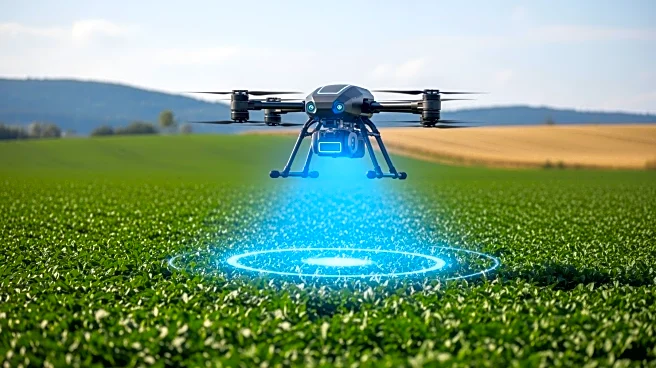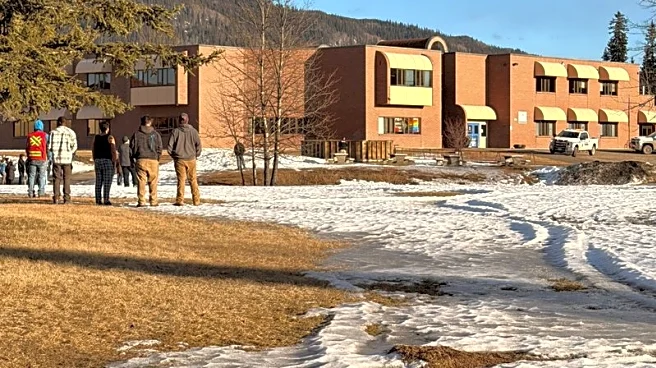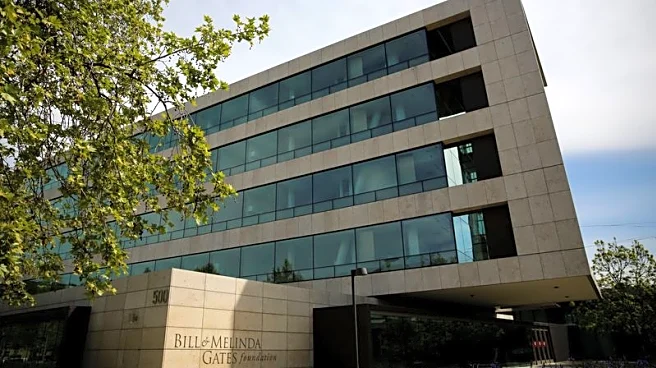What's Happening?
Advancements in crop protection technology are being developed to help farmers produce food more sustainably amid increasing political and social pressures. These technologies focus on managing pests,
diseases, and weeds that threaten crop yields, while also addressing climate change impacts and limited resources. Harald Kramer, a specialist adviser in Germany, highlights technologies that integrate diverse measures for precise and effective application of crop protection products. These include spot spraying, improved forecasting models, and autonomous mechanical weed control. The technologies aim to reduce costs, enhance safety, and minimize environmental impacts, potentially eliminating the need for certain chemical products.
Why It's Important?
The development of sustainable crop protection technologies is crucial for global food security, as farmers face challenges from climate change and resource limitations. These innovations can help increase crop yields while reducing environmental harm, supporting the agricultural industry's ability to meet growing food demands. The integration of technology in farming practices can lead to more efficient resource use and improved safety for farmworkers. As political and social pressures mount, these advancements offer a pathway for farmers to adapt and thrive in a changing landscape.
What's Next?
Further research and development are needed to refine these technologies and ensure their reliability and cost-effectiveness. The upcoming Agritechnica exhibition will showcase these innovations, providing a platform for farmers to explore new solutions. Collaboration between researchers, developers, and farmers will be essential in advancing these technologies and addressing challenges such as legal obstacles and monitoring efforts.
Beyond the Headlines
The push for sustainable farming practices reflects broader environmental and societal trends, emphasizing the need for responsible resource management. The development of non-chemical crop protection methods highlights a shift towards eco-friendly solutions in agriculture. The role of technology in transforming farming practices underscores the importance of innovation in addressing global food security challenges.









